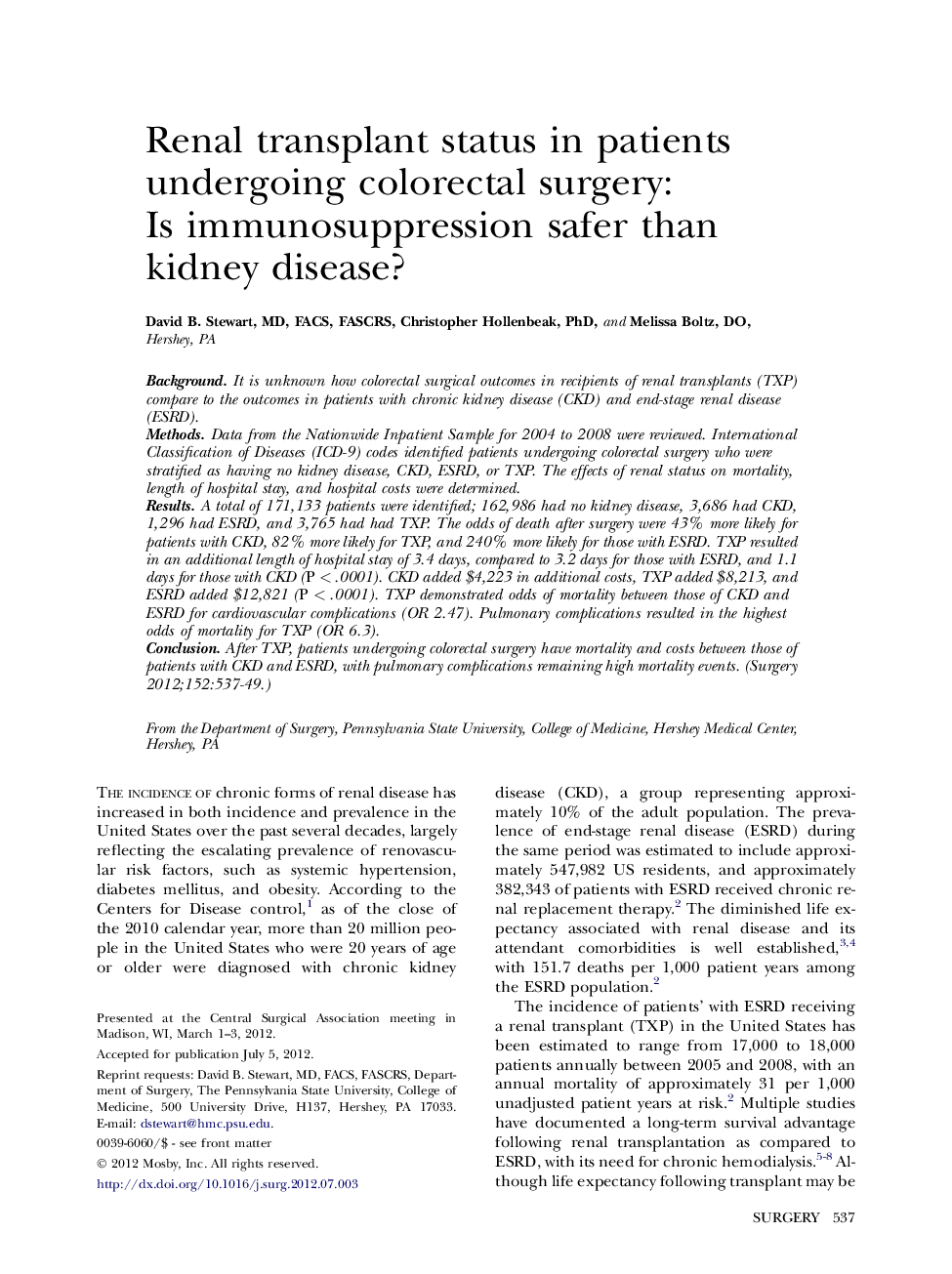| Article ID | Journal | Published Year | Pages | File Type |
|---|---|---|---|---|
| 4307820 | Surgery | 2012 | 13 Pages |
BackgroundIt is unknown how colorectal surgical outcomes in recipients of renal transplants (TXP) compare to the outcomes in patients with chronic kidney disease (CKD) and end-stage renal disease (ESRD).MethodsData from the Nationwide Inpatient Sample for 2004 to 2008 were reviewed. International Classification of Diseases (ICD-9) codes identified patients undergoing colorectal surgery who were stratified as having no kidney disease, CKD, ESRD, or TXP. The effects of renal status on mortality, length of hospital stay, and hospital costs were determined.ResultsA total of 171,133 patients were identified; 162,986 had no kidney disease, 3,686 had CKD, 1,296 had ESRD, and 3,765 had had TXP. The odds of death after surgery were 43% more likely for patients with CKD, 82% more likely for TXP, and 240% more likely for those with ESRD. TXP resulted in an additional length of hospital stay of 3.4 days, compared to 3.2 days for those with ESRD, and 1.1 days for those with CKD (P < .0001). CKD added $4,223 in additional costs, TXP added $8,213, and ESRD added $12,821 (P < .0001). TXP demonstrated odds of mortality between those of CKD and ESRD for cardiovascular complications (OR 2.47). Pulmonary complications resulted in the highest odds of mortality for TXP (OR 6.3).ConclusionAfter TXP, patients undergoing colorectal surgery have mortality and costs between those of patients with CKD and ESRD, with pulmonary complications remaining high mortality events.
